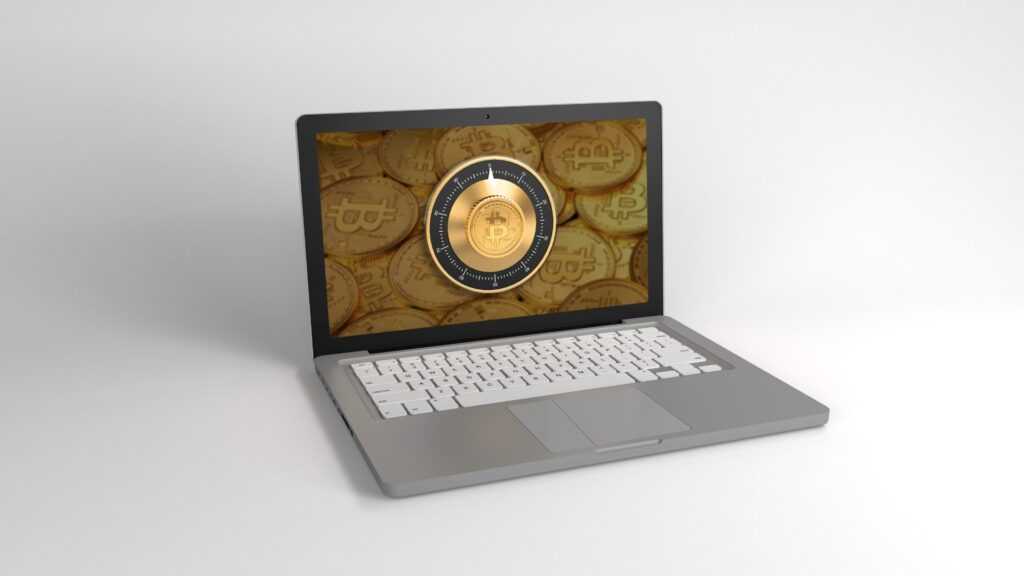Overview of Crypto Wallet Types
Cryptocurrency wallets fall into two main categories: hot wallets and cold wallets. Each offers unique features and security levels.
Hot Wallets
Hot wallets connect to the internet, making them convenient for frequent transactions. These wallets include mobile wallets, desktop wallets, and web wallets.
Hot wallets prioritize accessibility and ease of use. However, they are more susceptible to hacking due to their constant online presence.
Popular examples of hot wallets include:
- Coinbase Wallet: Well-known for its user-friendly interface and integration with the Coinbase exchange.
- MetaMask: Often used for interacting with decentralized applications (dApps) on the Ethereum blockchain.
- Trust Wallet: Offers broad compatibility with various cryptocurrencies and a simple mobile interface.
Cold Wallets
Cold wallets operate offline, providing a higher level of security. These wallets include hardware wallets and paper wallets. Cold wallets are ideal for long-term storage and significant holdings, keeping cryptocurrencies protected from online threats.
Key examples of cold wallets include:
- Ledger Nano S: A popular hardware wallet known for its robust security features.
- Trezor Model T: Offers a touchscreen interface and supports a wide range of cryptocurrencies.
- Coldcard: A specialized wallet designed for Bitcoin, emphasizing security and offline storage.
By understanding the differences between hot and cold wallets, users can make informed decisions about their cryptocurrency storage solutions.
Features of Top Crypto Wallets in 2024
Top crypto wallets in 2024 offer advanced features that cater to both security and usability. Each wallet integrates cutting-edge technology to meet evolving user needs.
Security Enhancements
In 2024, top crypto wallets focus on robust security features. Multi-signature functionality, which requires multiple approvals for transactions, reduces the risk of unauthorized access.
Hardware wallets, such as Ledger Nano X and Trezor Model T, use secure enclave technology to store private keys offline. Anti-phishing measures alert users if they encounter malicious sites.
Biometric authentication, including fingerprint and facial recognition, adds an extra layer. Wallets ensure that encryption standards are upgraded regularly to protect against new threats.
User Interface Improvements
User interface improvements simplify wallet navigation and enhance user experience. Intuitive designs with clear menus and accessible features enable seamless transactions.
Wallets like MetaMask and Trust Wallet offer customization options, allowing users to personalize their dashboard. Integrated tutorials and help sections guide new users through setup and usage processes.
Real-time notifications keep users informed about transaction statuses. Compatibility with both desktop and mobile devices ensures that users can manage their assets from anywhere.
Review of Hardware Wallets for 2024
Choosing the right hardware wallet in 2024 enhances both security and usability. Leading models and brands offer advanced features, making them essential tools for safeguarding crypto assets.
Leading Models and Brands
Top hardware wallet brands in 2024 include Ledger, Trezor, and KeepKey. Each brand provides distinct features to suit various user needs.
- Ledger Nano X
The Ledger Nano X offers top-tier security with secure element chips and Bluetooth connectivity for mobile access. Its robust design supports over 1,800 cryptocurrencies. - Trezor Model T
The Trezor Model T features a touchscreen interface and advanced security protocols. It includes password management features, providing a comprehensive solution for crypto management. - KeepKey
KeepKey offers a large display for transaction verification and integration with the ShapeShift platform. It’s user-friendly and supports multiple cryptocurrencies, making it suitable for beginners and experienced users.
Advanced Security Features
These hardware wallets incorporate cutting-edge security measures.
- Secure Element Chip
Both Ledger Nano X and Trezor Model T use a dedicated secure element chip, isolating sensitive data and providing an extra layer of security. - Passphrase Protection
Passphrase protection enhances security by adding an additional layer of encryption. This feature ensures only authorized users can access the wallet, even if the recovery phrase is compromised. - Firmware Updates
Regular firmware updates enhance security protocols and fix vulnerabilities. Ledger and Trezor regularly provide updates to keep their devices secure.
User Experience and Accessibility
The user experience and accessibility improvements in hardware wallets make them more appealing in 2024.
- Intuitive Interfaces
Touchscreen interfaces on devices like the Trezor Model T improve usability, allowing users to navigate and confirm transactions seamlessly. - Mobile Compatibility
Hardware wallets such as Ledger Nano X support mobile devices via Bluetooth, offering convenient access without compromising security. - Backup and Recovery
Easy backup and recovery solutions, including recovery phrases and additional passphrase options, ensure users can recover their assets if the device is lost or stolen.
Advanced features in leading hardware wallets in 2024 combine security and convenience, making them indispensable tools for managing and safeguarding cryptocurrencies.
Review of Software Wallets for 2024

Software wallets combine convenience and accessibility, making them popular for various users. I’ll explore the best desktop and mobile options for 2024.
Desktop and Mobile Options
Many users prefer desktop and mobile wallets due to their ease of use and accessibility. Here are top options to consider:
MetaMask:
- Platform: Available on mobile and desktop browsers.
- Key Features: Phishing detection, hardware wallet integration, and multi-wallet support. Users find MetaMask intuitive for DeFi activities and NFT management.
Trust Wallet:
- Platform: Mobile-only.
- Key Features: Supports numerous cryptocurrencies, DApps, and staking options. I find its biometric authentication and backup features particularly useful for enhancing security.
Exodus Wallet:
- Platform: Desktop and mobile.
- Key Features: Built-in exchange, portfolio tracking, and 24/7 customer support. Exodus offers a user-friendly interface, making it ideal for beginners.
Electrum:
- Platform: Desktop-only.
- Key Features: Highly secure with multi-signature support, hardware wallet compatibility, and customizable transaction fees. Electrum appeals to advanced users needing robust features.
Coinomi:
- Platform: Desktop and mobile.
- Key Features: Multi-currency support, in-app exchange, and private key control. Coinomi enhances privacy by not associating IP addresses with transactions.
By considering these desktop and mobile wallets, users can find the right balance of security and functionality for managing their cryptocurrencies in 2024.
Wallets with DeFi and NFT Support
Crypto wallets offering DeFi and NFT support provide users advanced management of digital assets.
Integrated Features for Advanced Users
Developers add features specifically for DeFi and NFT interactions in advanced crypto wallets. MetaMask easily connects to DeFi platforms, enabling seamless access to decentralized exchanges (DEXs), lending protocols, and yield farming opportunities.
Users manage NFTs directly within the wallet, supporting ERC-721 and ERC-1155 standards. Trust Wallet integrates similar options, allowing efficient trading and collection of NFTs from platforms like OpenSea and Rarible.
Its internal DApp browser connects users to various DeFi services without external applications.
Popular Wallets
Certain wallets stand out for their DeFi and NFT capabilities:
- MetaMask: Offers DeFi integration, DEX access, and NFT management.
- Trust Wallet: Provides built-in DApp browser, support for multiple NFT standards and an intuitive interface.
- Coinomi: Delivers multi-chain support, user-friendly DeFi features, and an extensive token library.
- Exodus Wallet: Incorporates NFT capabilities, staking, and DeFi interest accounts.
Security Considerations
Security is crucial for wallets dealing with DeFi and NFTs. Wallets employ private key encryption, multi-factor authentication, and seed phrase backups.
Regular updates and security audits ensure robust defenses. Using reputable hardware wallets like Ledger Nano X with MetaMask adds an extra security layer by storing keys offline.
User Experience
Wallets enhancing user experience feature clean interfaces, easy navigation, and responsive customer support. Tools for tracking portfolio performance, setting custom transaction fees, and accessing analytical reports offer additional convenience.
Mobile and desktop application availability ensures users manage assets anytime, anywhere.
Recommended Practices
Unlock the full potential of DeFi and NFTs by following these practices:
- Regularly update wallets to the latest versions.
- Utilize hardware wallets for storing significant assets.
- Diversify assets across multiple wallets to minimize risk.
- Understand the terms of DeFi protocols and NFT platforms before engaging.
Crypto wallets supporting DeFi and NFTs not only enhance asset management but also provide opportunities to participate in decentralized economies and digital collectibles.
Their advanced features, coupled with robust security, make them essential tools for cryptocurrency enthusiasts in 2024.






